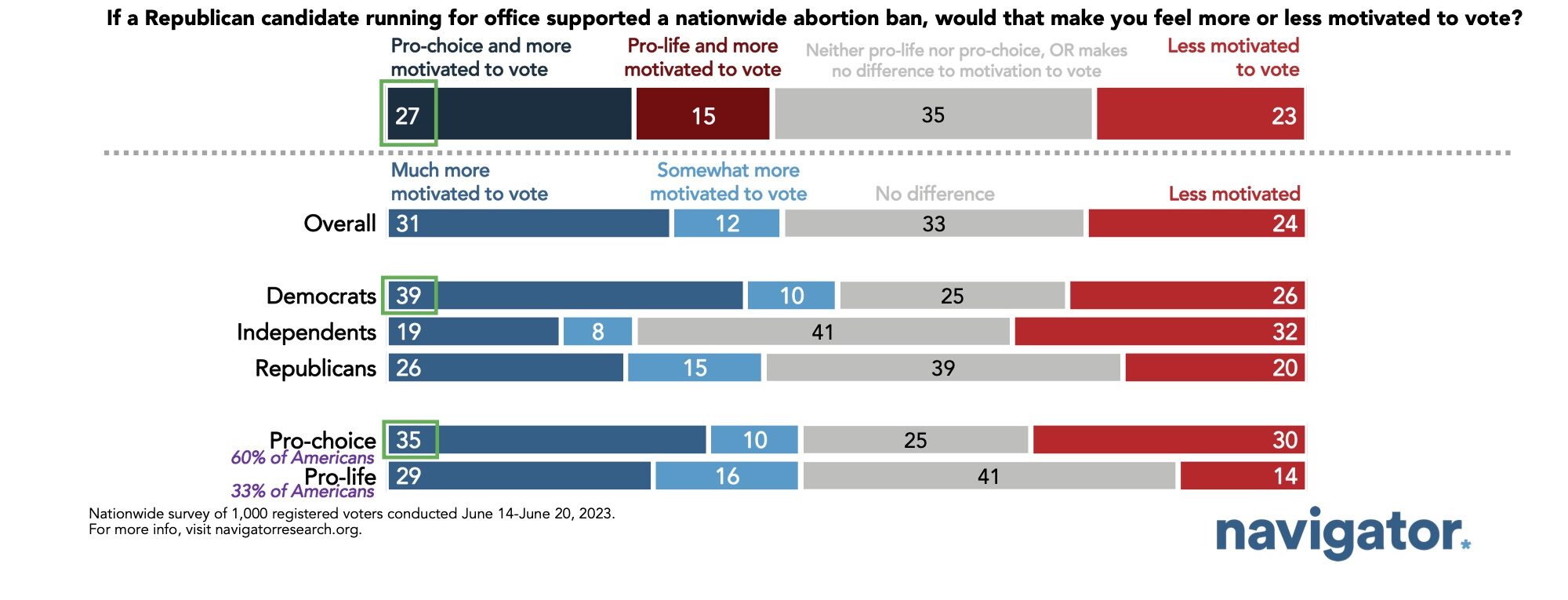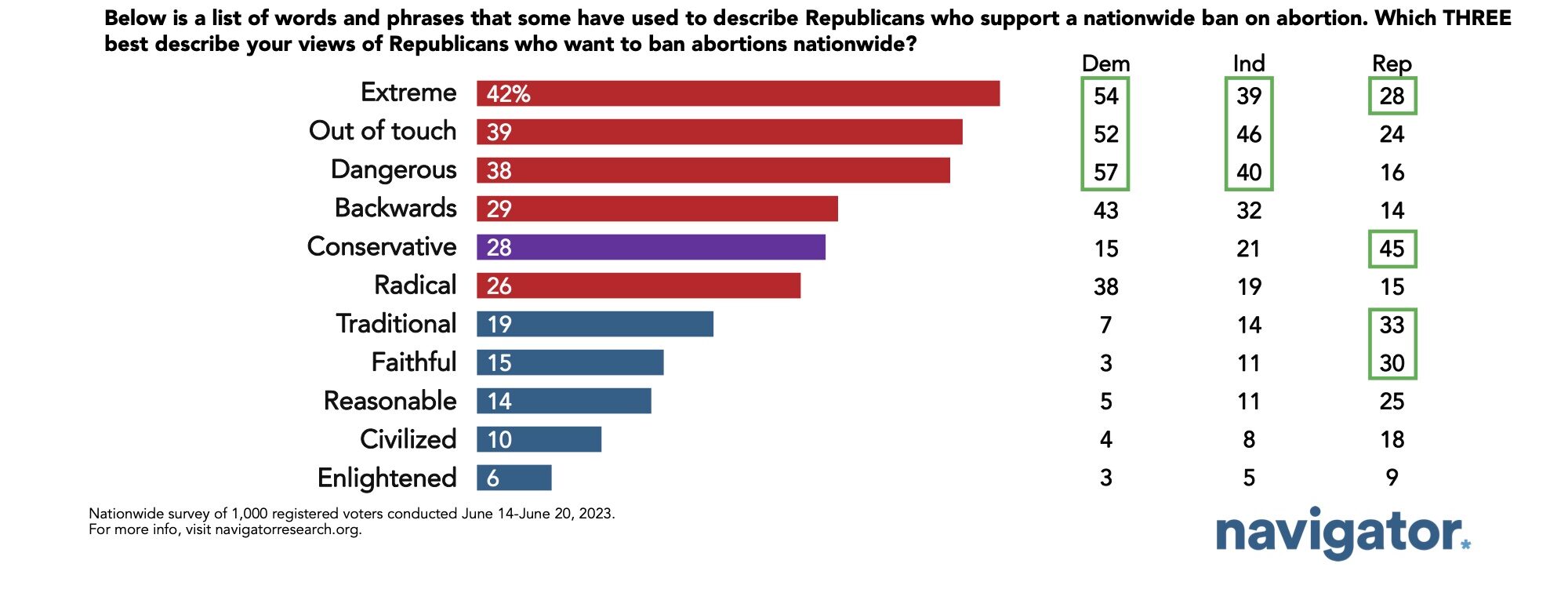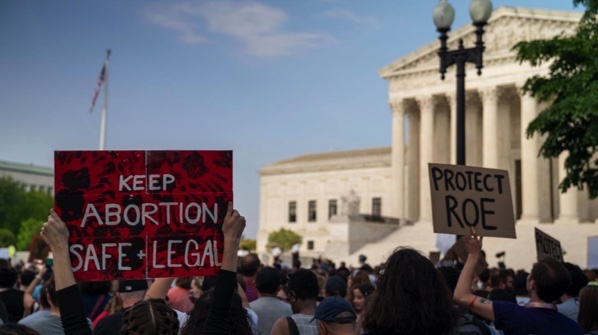Abortion: A Guide for Advocates
This Navigator Research report contains data from a new survey conducted June 14 – 20 on the latest perceptions of abortion rights in the year since Roe v. Wade was overturned, including whether the decision has been good or bad for the country, what actions Americans support Congress taking to protect abortion, as well as how Americans perceive potential bans on sending abortion medication by mail.
In the year since Roe was overturned, there remains consistent and growing support for abortion rights in the United States.
Three in five Americans identify as pro-choice (60 percent), while a third identify as pro-life (33 percent), compared to April of last year prior to the leaked Dobbs decision, when 58 percent identified as pro-choice and 36 percent identified as pro-life. There has been an increase in the share of independents who identify as pro-choice by a net 15 points (from net +26 in April 2022 to net +41 now); nearly seven in ten Americans under the age of 45 identify as pro-choice (68 percent).
- Americans overwhelmingly say that either abortion is morally acceptable and should be legal or that the government should not be involved in the decision to have an abortion (72 percent), including overwhelming majorities of Hispanic Americans (81 percent), Asian American and Pacific Islanders (79 percent each), Black Americans (77 percent), and white Americans (70 percent).
- Nearly three in five Americans say that the Supreme Court eliminating the federal right to an abortion has been bad for the country (58 percent), including four in five Democrats (81 percent), a majority of independents (55 percent), and a third of Republicans (32 percent).
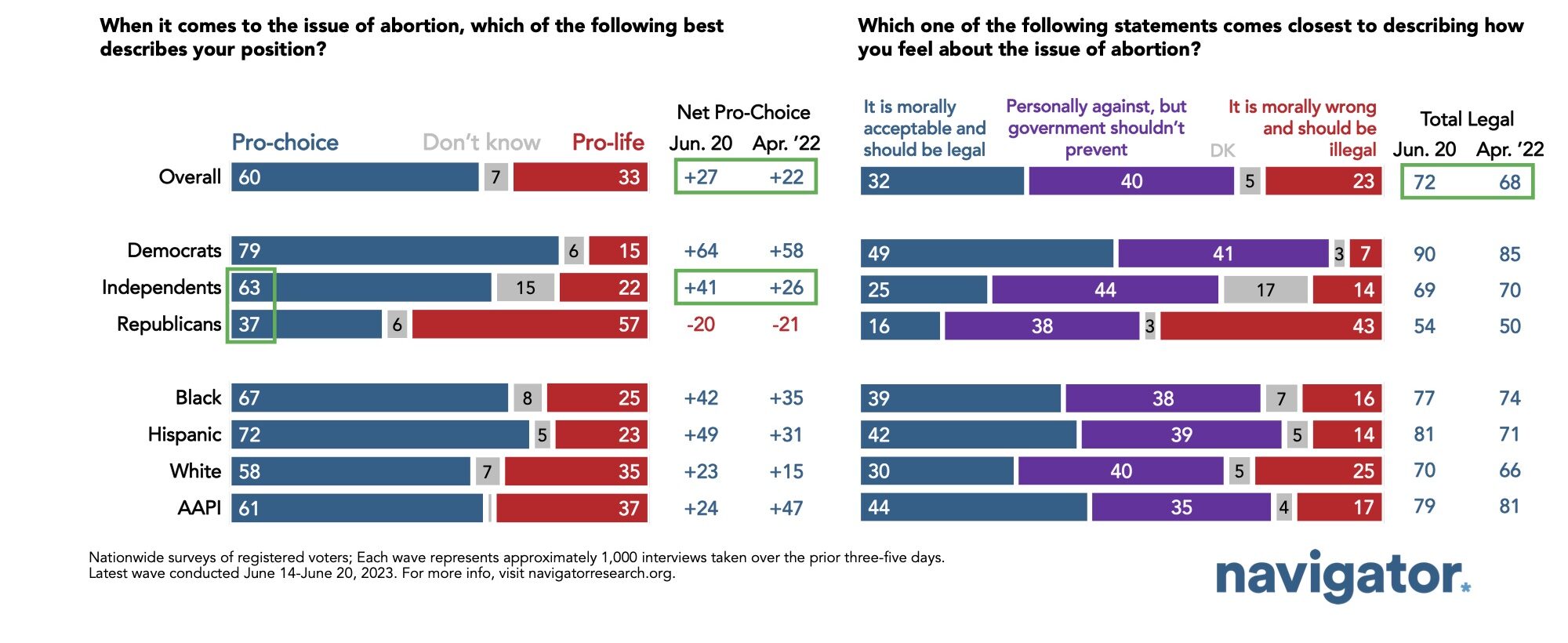
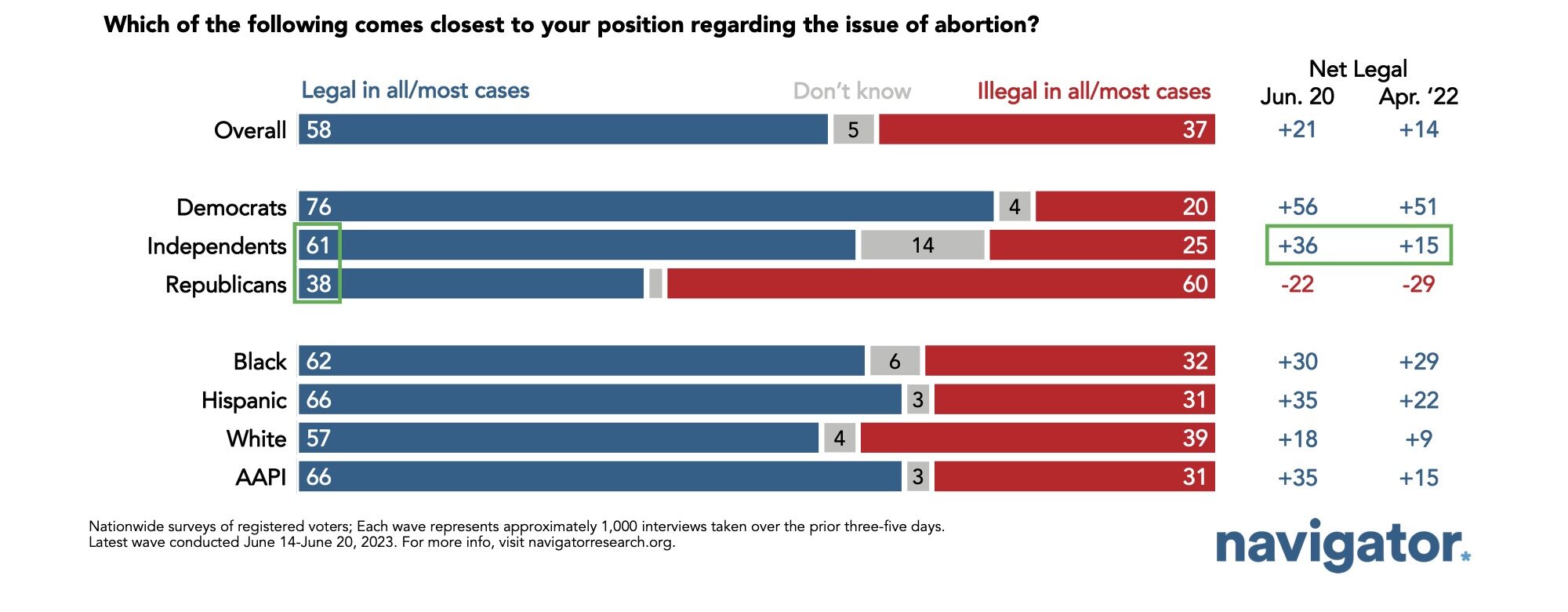
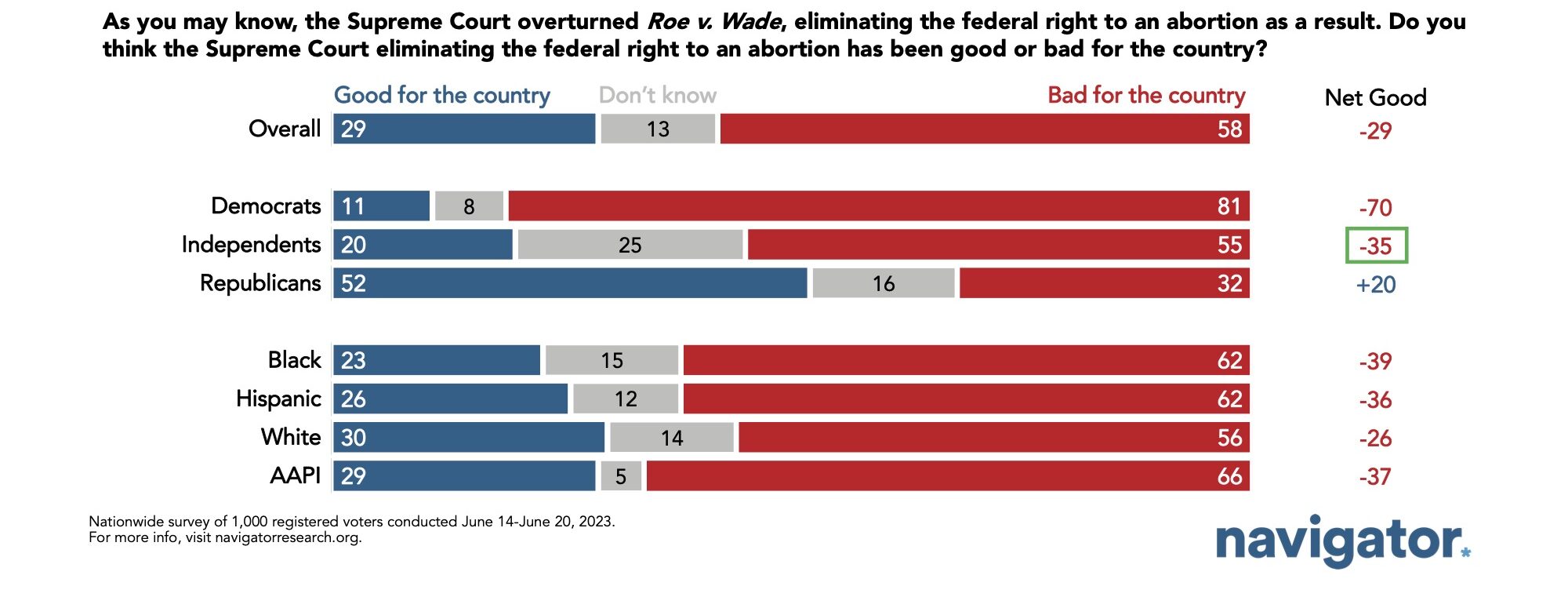
Americans oppose the banning of sending prescription abortion medication by mail.
As anti-abortion activists look to the enforcement of the Comstock Act to further restrict abortion access, Americans oppose the banning of sending prescription abortion medication by mail. By an 18-point margin, Americans oppose a ban on sending prescription abortion medication by mail (34 percent support – 52 percent oppose). Opposition increases to a 31-point margin with additional context regarding the Comstock Act as “an 1873 law that prevents the mailing of ‘obscene’ materials… today, some anti-abortion advocates want the government to use the same law to ban the mailing of prescription abortion medication to patients to end an early pregnancy at home” (27 percent support – 58 percent oppose), including among three in four Democrats (net -56; 17 percent support – 73 percent oppose), a majority of independents (net -36; 20 percent support – 56 percent oppose), and a narrow plurality of Republicans (net -2; 40 percent support – 42 percent oppose).
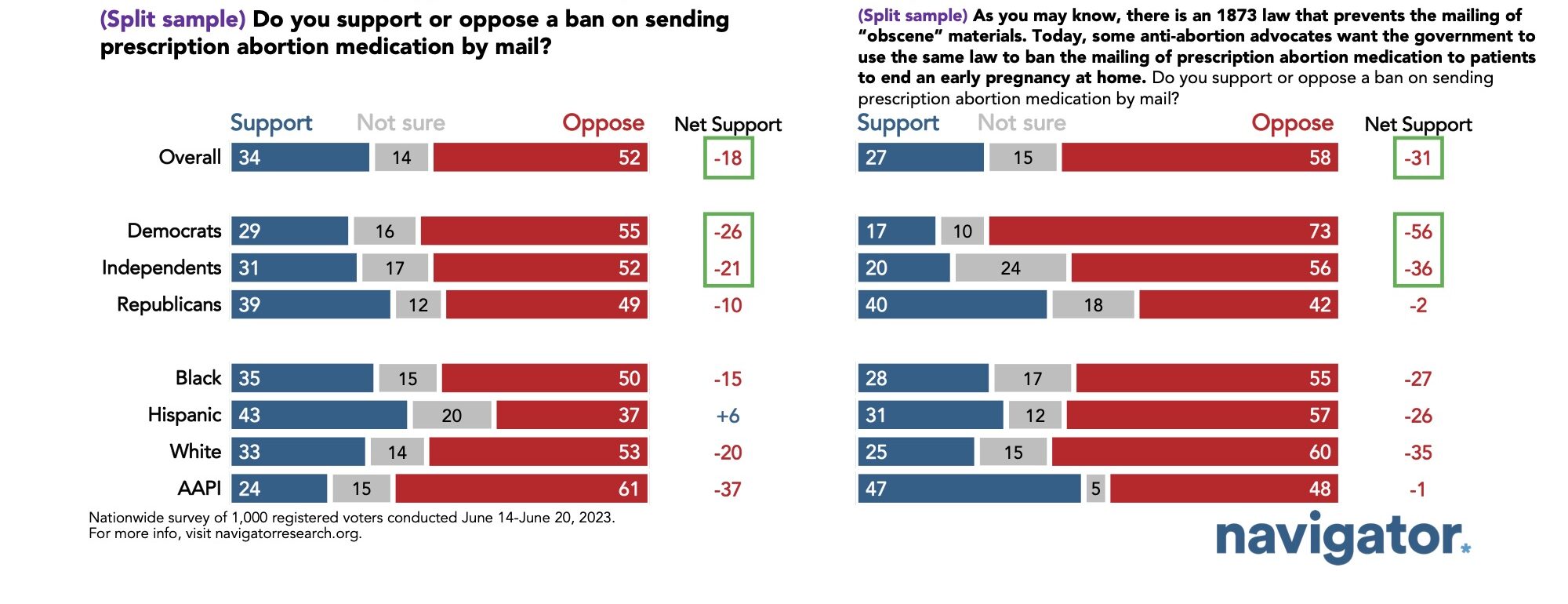
Opposition to a nationwide abortion ban has grown while support for a federal law to protect abortion rights remains strong.
Two in three Americans oppose a nationwide ban on abortion (net -41; 26 percent support – 67 percent oppose). While a similar share opposed a nationwide ban prior to the Dobbs decision last June (net -35; 29 percent support – 64 percent oppose), there has been increases in the shares of Democrats (from net -59 to net -71) and independents (from net -46 to net -54) who oppose a nationwide ban.
- Three in five Americans support Congress passing a law guaranteeing the right to an abortion (net +27; 59 percent support – 32 percent oppose), including nearly four in five Democrats (net +63; 78 percent support – 15 percent oppose), a majority of independents (net +28; 54 percent support – 26 percent oppose), and two in five Republicans (net -11; 40 percent support – 51 percent oppose).
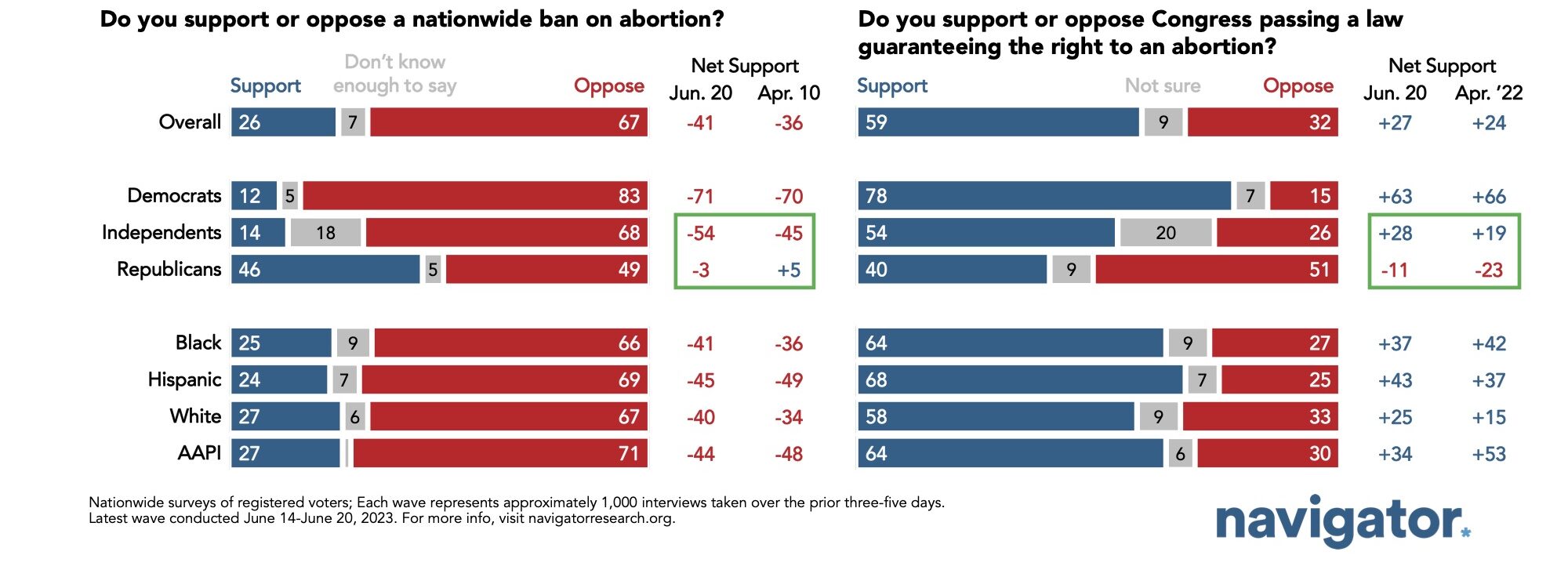
A plurality of Americans say a nationwide abortion ban makes them more motivated to vote.
When asked whether a Republican candidate’s support for a nationwide abortion ban makes Americans more or less motivated to vote, 43 percent say it would make them more motivated, compared with 24 percent who say less motivated while 32 percent say it makes no difference. Half of Democrats say they are more motivated to vote by a nationwide abortion ban, including 39 percent who say they are “much more” motivated to vote, compared to 41 percent of Republicans who say they are more motivated to vote, including just 26 percent being “much more” motivated to vote. There is a significant motivation advantage by abortion position: 27 percent of Americans overall are both pro-choice and more motivated to vote, compared to just 15 percent of Americans overall who are pro-life and more motivated to vote.
- Americans are most likely to describe Republicans who support a nationwide abortion ban as extreme (42 percent), out of touch (39 percent), and dangerous (39 percent). Independents and Democrats are most likely to describe these Republicans as out of touch (46 percent and 52 percent, respectively) and dangerous (40 percent and 57 percent, respectively). Republicans are most likely to call them conservative (45 percent), traditional (33 percent), and faithful (30 percent), though one in four call them extreme (28 percent) and out of touch (24 percent).
